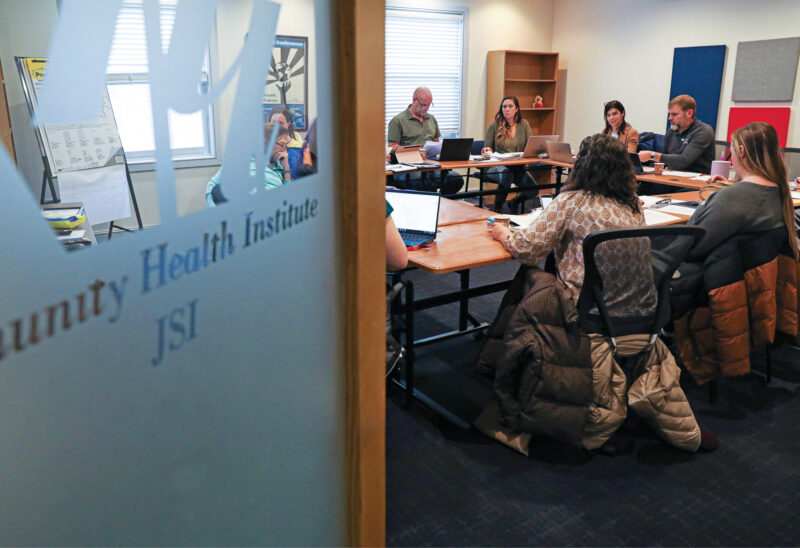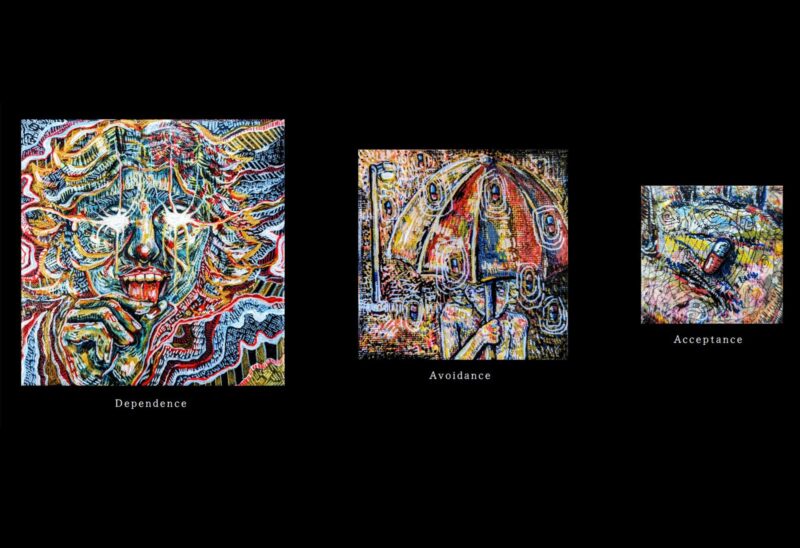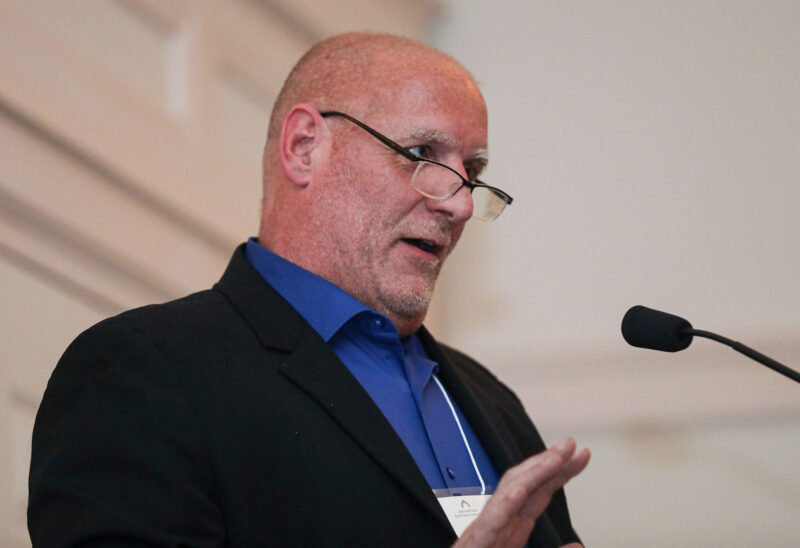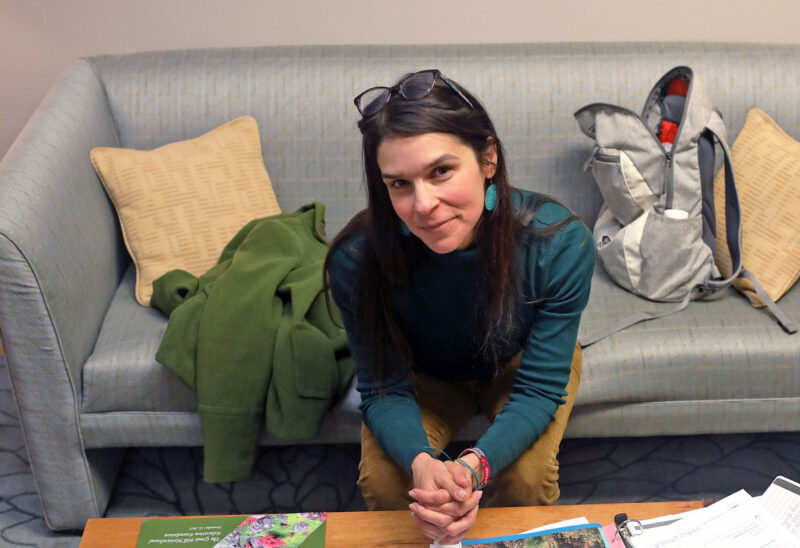More Americans died from opiate overdoses last year than from gun violence or traffic accidents.
In 2016, 478 people died from overdoses in New Hampshire — a number that more than doubled since 2013. New Hampshire now ranks second (only to West Virginia) in the nation in the number of opioid-related deaths per capita.
To many, the opioid crisis appeared to emerge from nowhere. But simmering for decades in New Hampshire was a crisis of substance misuse, including both alcohol and drugs, that reached into nearly every family and every community. It is a crisis that has cost the state billions in lost productivity, and in health care, criminal justice and other societal expenses. The same is true in many places around the country.
In the midst of alarming trends and dire headlines, we recognize that the progress we have made in New Hampshire — the relationships forged, networks created and systems built — is helping us address the opioid crisis now.
A lot of that progress came as the direct result of the generosity of a chicken farmer.
Oliver Hubbard of Walpole made an astonishing gift in the 1990s: $43 million to the New Hampshire Charitable Foundation, New Hampshire’s statewide community foundation, to address substance misuse.
Hubbard really was a chicken farmer, and a real-deal New Hampshire Yankee. His Boy Scout project raising chickens turned into a multi-national poultry research and breeding company. (The iconic “New Hampshire Red” is a Hubbard-bred bird.)
Hubbard read in the newspaper about the ravages of substance misuse among young people, and those stories troubled his thoughts.
His generosity made the New Hampshire Charitable Foundation the largest private funder in the state addressing the disease of addiction. By the time the opioid epidemic reached its current level, the Foundation was deeply involved, with a team of partner organizations, in working toward solutions. Our efforts include a partnership with the Conrad N. Hilton Foundation to implement a proven youth drug and alcohol screening protocol into medical settings, to providing key support for proven prevention programs, to supporting advocacy to expand insurance coverage for addiction treatment.
And we are happy to report some good news: substance use among youth in New Hampshire is actually on the decline.
The latest Youth Risk Behavior Survey, administered by the Centers for Disease Control and Prevention, shows that use of alcohol and rates of binge drinking have dropped significantly among New Hampshire high school students since 2005. Marijuana use is also down. And, very significantly, the data show a decline since 2011 in the misuse of prescription drugs. Since misuse of prescription drugs frequently leads to heroin use, this decline represents an important step in turning the corner on the opioid epidemic. And since onset of addiction most often happens during adolescence, arresting that onset can save lives. We are awaiting 2017 results and hoping this momentum continues.
These numbers help us see our way forward, with hope, in this difficult work.
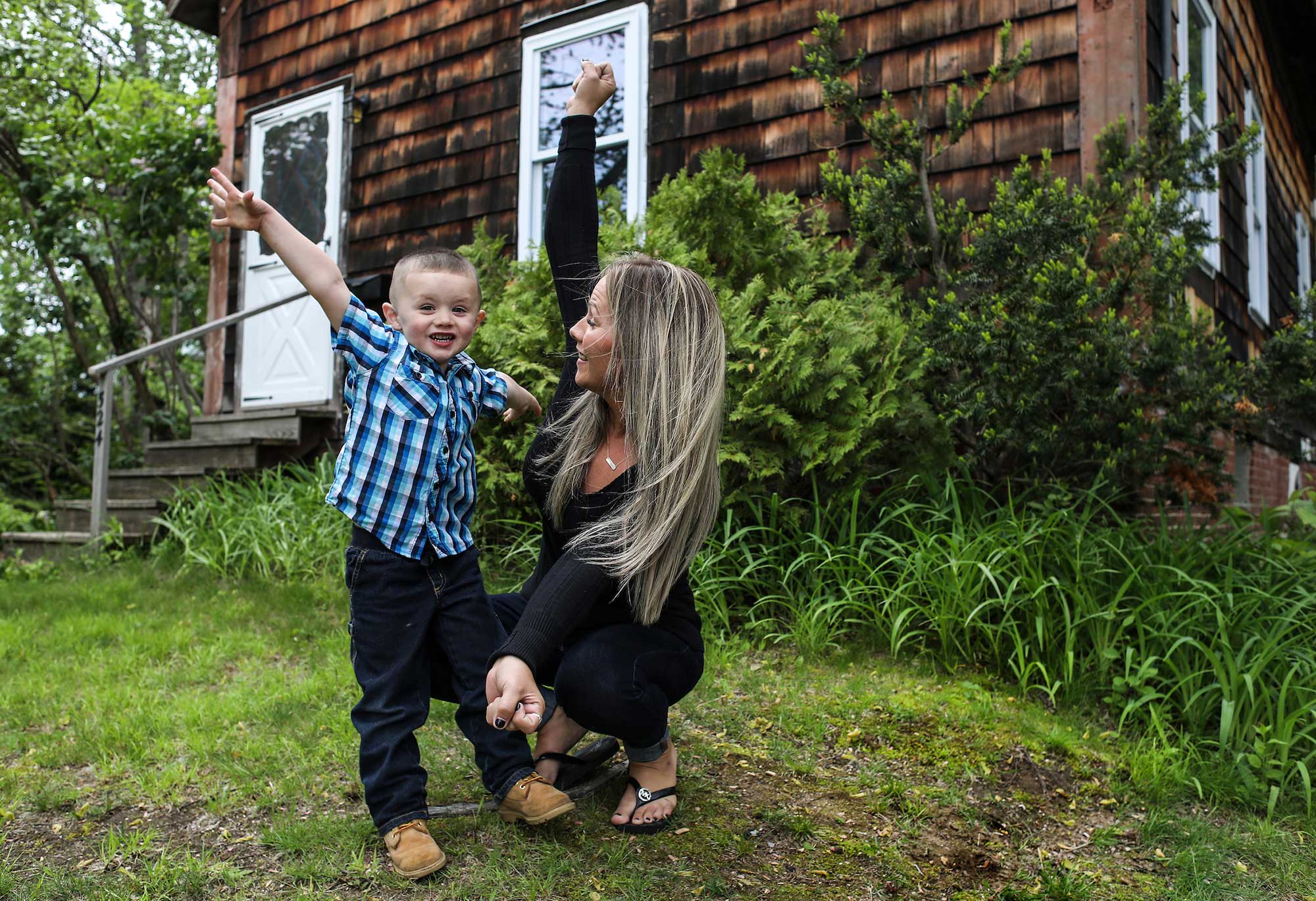
Ashley Hurteau and her son play outside their new home. Hurteau received treatment for a substance use disorder through the state’s expanded Medicaid program. Now she works as a program integrator at a recovery center. Photo by Cheryl Senter.
All philanthropy is personal
When the opportunity to do this work came up, I jumped. I know firsthand what it is like to be in the darkest of places and have philanthropy step in.
Eleven years ago, right before Christmas, my son Declan was in the hospital being treated for brain cancer. His case was complex and he needed a harrowing series of treatments. I was running a nonprofit doing prevention work with youth, while my wife had quit her job to care for Declan, and the medical bills were piling up.
The hospital social worker came in one day and told us that a family had established a fund at the hospital to help other families whose children had complicated cancers. He handed us a bag. In it were $2,000 in gift cards — donated by generous people who did not know us at all. That generosity helped ease our burden, and even allowed us to buy a few Christmas gifts for Declan.
I knew then that if I ever had the chance to be on the other side, to lift a burden or provide hope for families struggling with a terrible disease, that was where I wanted to be. I joined the Foundation two years later.
Declan is in remission now. And, after nine years of doing this work, hope is something I have in abundance.
My job, as director of substance use disorders grantmaking, is far-ranging. On any given day, I might speak at an event with public health and law enforcement partners, present grant requests to the Foundation’s board, and end the day at a spaghetti supper fundraiser at a local recovery center, one of our grantees. For eight years, I have chaired the Governor’s Commission on Alcohol and Other Drug Use. That commission leads the comprehensive statewide plan to tackle addiction, and brings stakeholders shoulder-to-shoulder with state legislators, agency commissioners, health care providers and other leaders.
I did not fully understand, until I came to work here, why working on policy and advocacy was the best use of Oliver Hubbard’s gift. But I have seen more progress in the last eight years than I saw in the previous ten or 20. And that is not about me. It is because this Foundation has fully leaned in, using grant dollars and convening power and the historical gravitas of this organization to bring about lasting change.
And yet, philanthropy cannot begin to solve this complex problem alone. But as we see it, and as Oliver Hubbard saw it, philanthropy can be a catalytic agent of change.
That’s because philanthropy can take risks. We can think long-term — beyond the next budget or election cycle. We can often be more nimble than the public sector. We can nurture partnerships among all sectors, use resources to attract additional funding, build systems that create change.
The fact that we have been doing all of that for 20 years means that now, in the teeth of the current epidemic, we are much better positioned to add value to our partners, strategically deploy resources, and advocate for increased prevention, treatment and community supports.
Twenty years of change
A year after Oliver Hubbard’s initial gift, the Foundation launched New Futures, the state’s leading advocacy and education organization in the area of substance misuse.
This independent, nonpartisan, nonprofit has been instrumental in collecting comprehensive data about the problem. It played a huge role in the creation of the state’s Alcohol Fund, which dedicates resources from the profits of state-run liquor stores for treatment, prevention and recovery. It has been instrumental in the passage of laws that have helped protect New Hampshire’s young people. State lawmakers consider New Futures the go-to source of information and education on these issues, and people working on the front lines rely on New Futures to have their back in the policy arena.
Foundation funding in 2015 also helped create an important new position in the Governor’s office, the Advisor on Addiction and Behavioral Health, to coordinate the state’s myriad efforts to combat substance misuse.
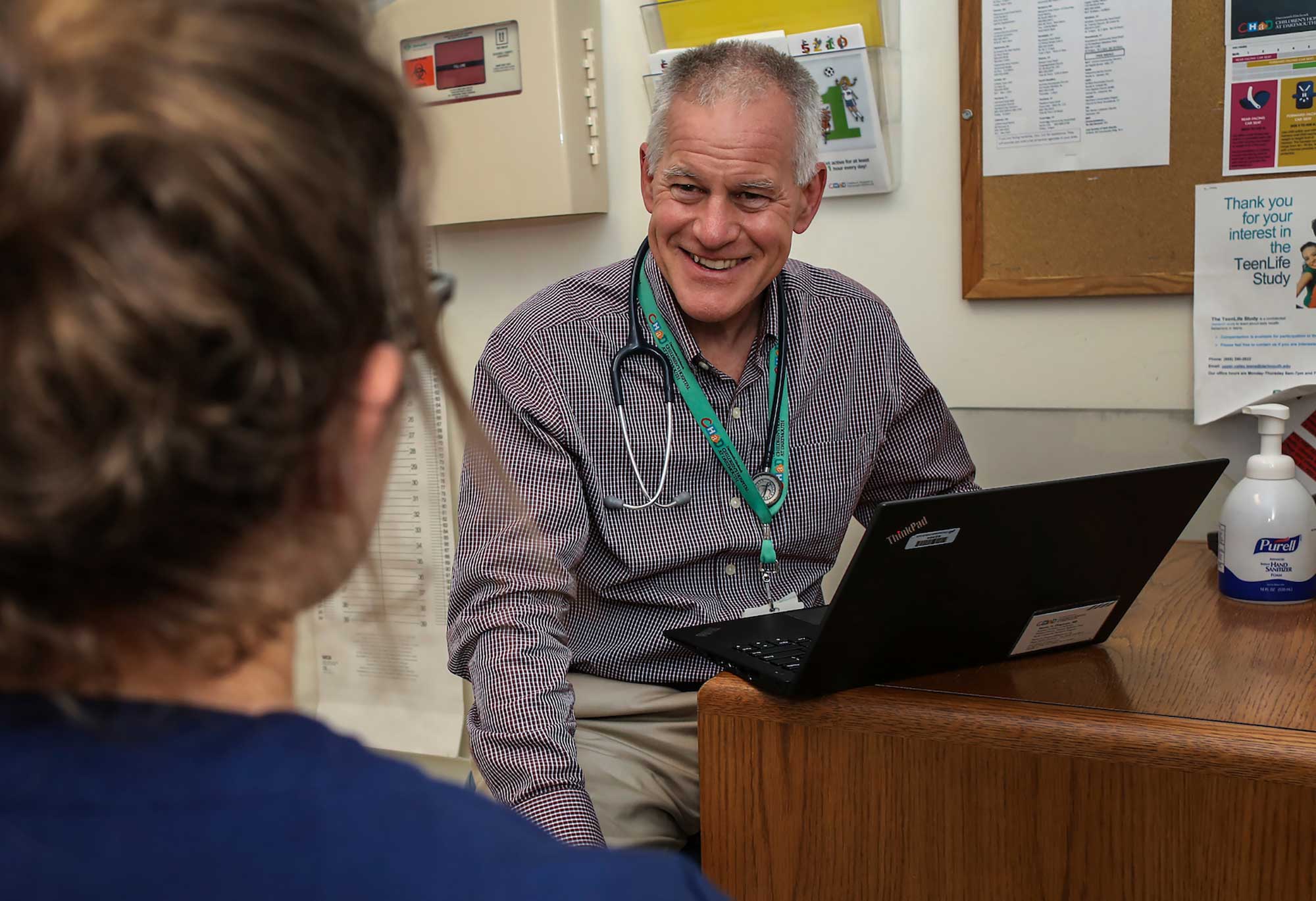
Dr. Steve Chapman of Dartmouth-Hitchcock Medical Center uses a customized screening, intervention and referral protocol to speak with young patients about substance use. Photo by Cheryl Senter.
We partnered with the state’s Bureau of Drug and Alcohol Services to establish the Center for Excellence in Substance Use Services in 2009, a resource in best practices, which provides critical technical assistance to the state, including to regional public health networks and addiction treatment providers.
The Foundation also funded advocacy efforts that were instrumental in the passage of the bipartisan New Hampshire Health Protection Program, which extended insurance coverage — including coverage to treat substance use disorders — to about 50,000 people in 2014. And here’s where the “nimble” part comes in: That expansion of Medicaid meant treatment centers had to comply immediately with new billing and licensing requirements. Systems had to be created, billing staff trained, facilities modified. Four centers were in danger of closing. The Foundation was able to quickly provide bridge funding — and ensured all four remained open.
We funded a pilot in medical settings of a proven screening, intervention and referral protocol for substance use in New Hampshire in 2013, then partnered with the Conrad N. Hilton Foundation to implement it for youth. More than 15,000 young people have been screened for substance use, and more than ever are having meaningful and consistent conversations about substance use with their primary care providers.
Since 1996, we have granted more than $42 million for prevention, treatment and recovery. Our efforts helped bring in an additional $56 million to the state since 2009 in federal and private grants. Since Hubbard’s gift is invested for the long-term, grants will continue to be made from it in perpetuity. And the results of his philanthropy have inspired other generous people to contribute to these efforts for New Hampshire.
All of this has happened because Oliver Hubbard cared.
I never met Oliver Hubbard. When he made his initial gift, I was just out of grad school and running prevention programs for high school students. But Oliver is in my head a lot. His intentions, his generosity, his fierce commitment. I’d love to bring him to talk to a doctor whose young patients are opening up about substance use as a result of the protocols now in place. I would love to introduce him to people who are having the chance to rebuild their lives, and parent their kids, because they got treatment for addiction through Medicaid. I would love to take him to see successful prevention programs in rural corners of New Hampshire. I would love to share with him the data showing that fewer young people today are misusing drugs and alcohol–and which make us so hopeful that these efforts are helping to turn the tide.
I would love to be able to point at all of that, with clear eyes to the challenges still at hand, and show that chicken farmer everything his generosity has built — and, on behalf of the thousands of lives his philanthropy has saved, say “thank you.”

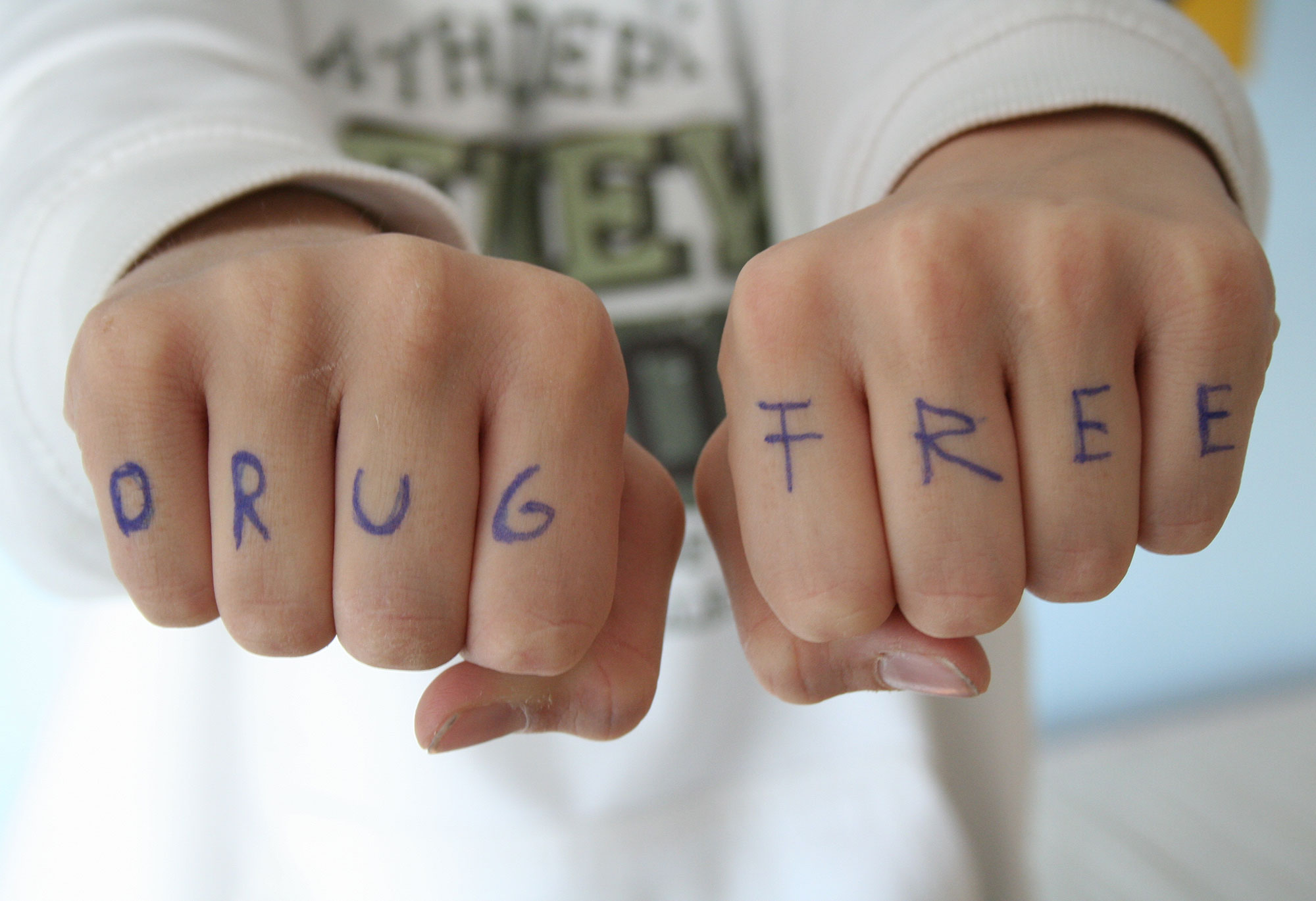





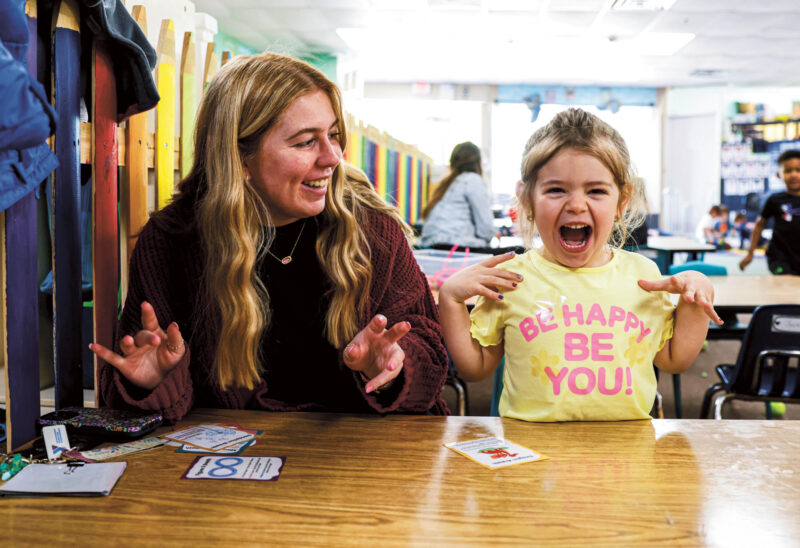
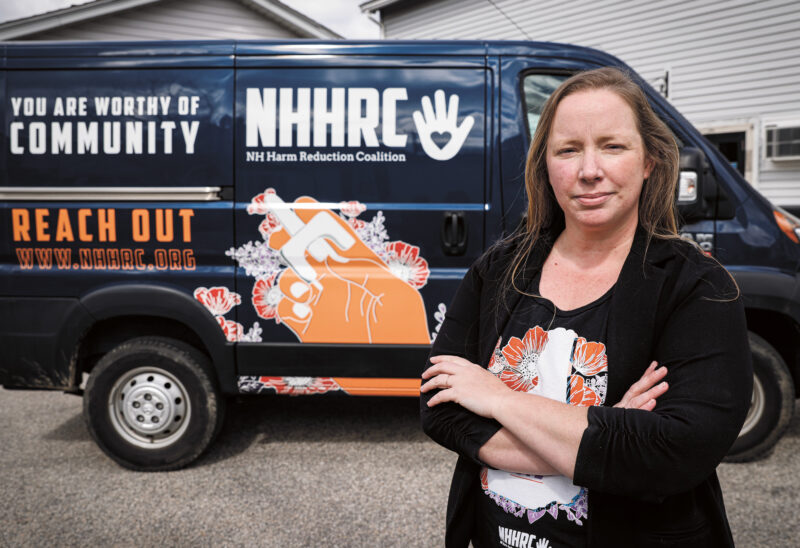
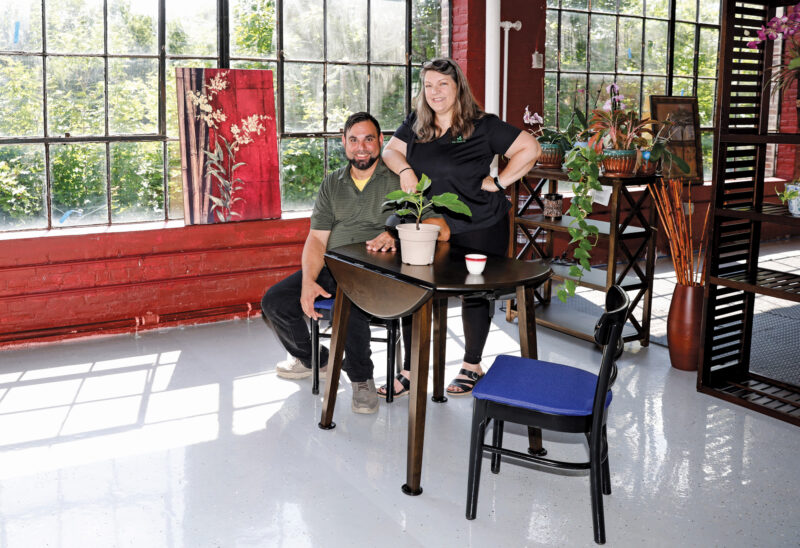
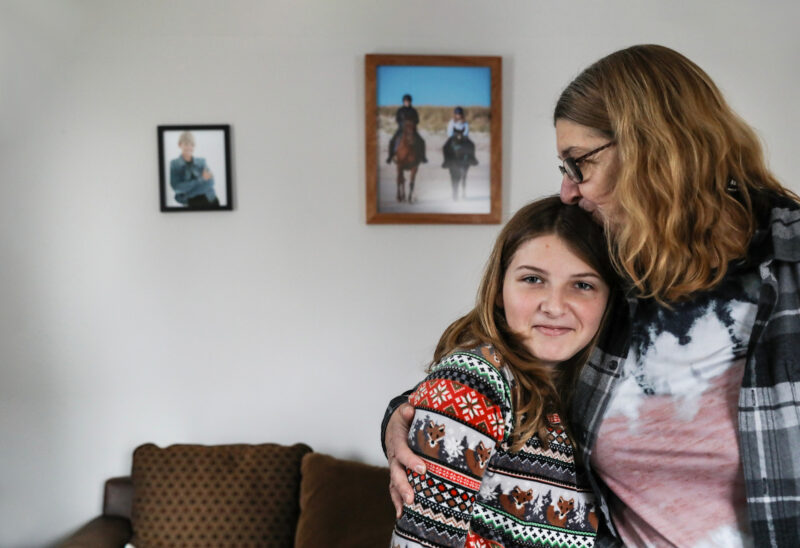

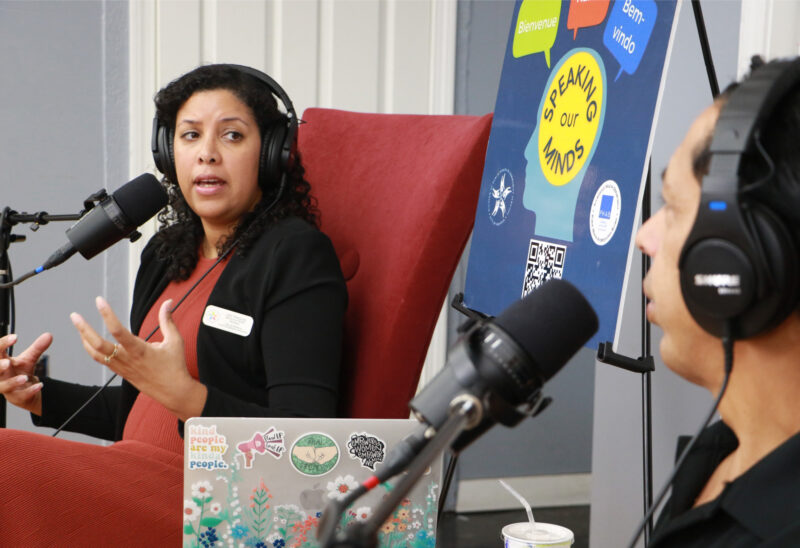
![Charitable Foundation President Dick Ober [Photo by Cheryl Senter]](https://www.nhcf.org/wp-content/uploads/2023/12/dick-ober-purpose-fall-winter-2023-800x548.jpg)
